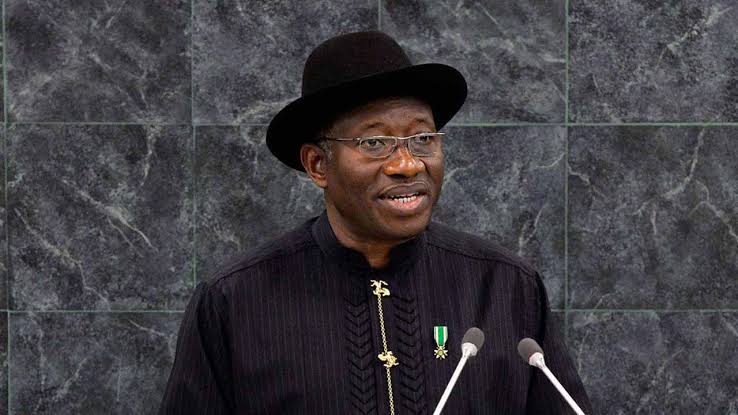Boko Haram once nominated Buhari as negotiator; Chibok ‘scar’ will die with me – Jonathan

By Kingsley Omonobi, Abuja
Former President Goodluck Ebele Jonathan said on Friday that Boko Haram insurgents once nominated former President Muhammadu Buhari to represent them in negotiations with the federal government when his administration explored dialogue as a non-combatant approach to ending the group’s activities.
Jonathan made the disclosure at the public presentation of SCARS: Nigeria’s Journey and The Boko Haram Conundrum, a book authored by former Chief of Defence Staff General Lucky Irabor, at the Transcorp Hilton in Abuja.
“One of the major scars on my government is the scar of the Chibok girls. It is a scar that will die with me,” Jonathan said. “I pray that, perhaps one day, the leaders of this group will be literate enough to write a book or come out to tell Nigerians what Boko Haram was all about.”
He said that in efforts to tackle the insurgency, which began before his presidency in 2009, his administration set up several committees to explore options for peace. “During one of such processes, the insurgents put forward Buhari to lead their team to negotiate with government,” he said.
Jonathan added that he had hoped that, were that to have led to a dialogue when Buhari later became president, it might have been easier to secure a surrender. “But the insurgency still persisted,” he noted.
Recalling earlier efforts, Jonathan referenced the processes he supported as vice-president under the late President Umaru Yar’Adua that helped end militancy in the Niger Delta. He said the persistence of Boko Haram demonstrated the complexity of the crisis.
“If you conduct research and interview many people, you will only get part of the story, but never the full story of Boko Haram. I was there. Boko Haram started in 2009 when I was vice president. I took over in 2010 and spent five years battling the insurgency until I left office,” he said. “I thought that after I left, within a reasonable time, General Buhari would wipe them out. But even today, Boko Haram is still there. The issue of Boko Haram is far more complex than it is often presented.”
Jonathan urged the current administration to consider a mix of incentives and pressure in addressing the insurgency. “The issue of carrots and the stick may be adopted,” he said. “If it was only about hunger — because we tried different options — I don’t want to sound like I’m defending my government, but I believe we did our best: we set up different committees and tried various approaches during the five years I was in office.”
He also questioned the source of the group’s weapons and ammunition, suggesting external involvement. “Where are these guns and sophisticated weapons coming from? You begin to see that external hands are also involved,” he said.
Jonathan described the abduction of the Chibok schoolgirls in 2014 as a permanent scar on his administration and expressed hope that, in time, some Boko Haram leaders might document the group’s motivations and actions to provide clarity.
Representing President Bola Tinubu, the Minister of Defence, Mohammed Abubakar Badaru, described General Irabor’s book as “not only history; it provides guidance for the present and serves as a roadmap for the future,” and affirmed the government’s commitment to modernising the armed forces and strengthening intelligence and regional partnerships.
Among dignitaries at the occasion were the Sultan of Sokoto, Sa’ad Abubakar III; Bishop Matthew Hassan Kukah, who reviewed the book; Chief of Defence Staff General Christopher Gwabin Musa; former National Security Adviser Babagana Monguno; General Alexander Ogomudia (rtd); Vice Admiral Dele Joseph Ezeoba (rtd); and Minister of Budget and National Planning Atiku Bagudu.
The post Boko Haram once nominated Buhari as negotiator; Chibok ‘scar’ will die with me – Jonathan appeared first on Vanguard News.







